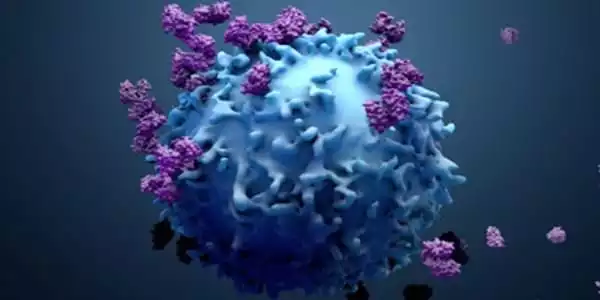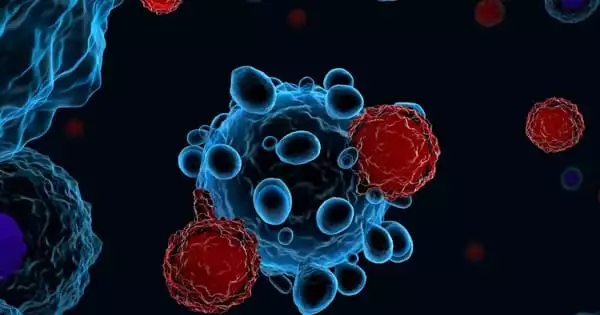Colon and rectal cancers are malignancies that affect the lower half of the digestive system: the large intestine and the rectum. Despite early detection and treatment, tumors of the colon or rectum (colorectal cancer) can recur at a later date, even if the cancer was completely eliminated during the initial therapy.
Many tumors have high quantities of the reverse transcriptase enzyme. Single-agent lamivudine, a reverse transcriptase inhibitor, halted disease progression in more than 25% of patients with fourth-line resistant metastatic colorectal cancer. These findings support the consideration of reverse transcriptase inhibitors as a novel class of anti-cancer medicines.
According to new clinical studies, lamivudine, a reverse transcriptase inhibitor often used in HIV therapy, halted disease progression in 25% of patients with fourth-line metastatic colorectal cancer. The trial’s findings, published in Cancer Discovery, raise the prospect of an unexpectedly beneficial route in cancer treatment, not just for colorectal cancer.
The trial comprised 32 patients with advanced metastatic colon cancer who had progressed despite receiving four lines of previous cancer treatment. The first nine individuals were given the usual HIV-approved lamivudine dose. “We noticed signals of disease stability after giving them only this one medicine — nothing else,” says co-senior author David T. Ting, MD, of the Mass General Cancer Center. Another 23 patients received lamivudine therapy when the dosing was fourfold adjusted, and it was well tolerated.
Disease stability in a cancer patient group this advanced with a single medication is quite unusual, and we hope to shortly begin a bigger Phase III investigation with a three-drug reverse transcriptase inhibitor combination.
David T. Ting
At the end of the trial, the research team discovered that 9 of the 32 patients, or 28%, exhibited illness stability or a mixed response. “This demonstrates that an HIV medicine can be repurposed as an anti-cancer therapy in patients with metastatic disease,” says Ting. While the researchers did not observe tumor reduction, the findings remain encouraging.
“If we observe this kind of response with just one HIV medicine, the next obvious trial is to investigate what else we can do with HAART, or highly active anti-retroviral therapy,” Ting adds, referring to the typical three-drug HIV treatment regimen.
Over the last ten years, the first hints about this unusual medication trial have emerged in Ting’s lab and those of his partners. The researchers revealed that up to 50% of a tumor’s DNA was made up of “repetitive elements,” which were previously thought to be “junk DNA.”

“These repeating elements were only produced by cancer cells, not healthy cells,” Ting explains. Colorectal tumors, as well as esophageal, lung, and other malignancies, create large amounts of repetitive components. These repeated components produce massive amounts of RNA, which reproduce in a viral-like life cycle via reverse transcription into what Ting refers to as the repeatome.
The repeatome behaves similarly to a virus, relying on reverse transcription to multiply and travel throughout the genome. “It’s a mechanism for tumors to rearrange their genome to adapt to stress,” explains Ting, who had the notion to see if an HIV treatment called lamivudine might interfere with the process.
Ting discovered that colorectal cancer cells were susceptible to lamivudine in preclinical experiments, limiting their capacity to migrate. The researchers also discovered that the medication caused DNA damage and interferon responses, indicating that it promoted an inflammatory response in tumor cells. Ting theorizes that combining reverse transcriptase inhibitor medication with immunotherapy may promote immune cells to become involved in certain malignancies, albeit this has not been verified or analyzed in this experiment.
According to research, the incidence of colon, breast, and prostate cancer in a U.S. population of HIV patients undergoing three-drug anti-retroviral therapy for life was much lower than in the general population. Ting hypothesizes that this type of therapy could prevent cancer or recurrence, or change a crippling metastatic disease like HIV into a chronic disease.
“We did the trial to see whether we could learn anything new about the biology of cancer cells, and in the process we discovered this unexpected, extremely encouraging finding,” Ting explains. “Disease stability in a cancer patient group this advanced with a single medication is quite unusual, and we hope to shortly begin a bigger Phase III investigation with a three-drug reverse transcriptase inhibitor combination.”





